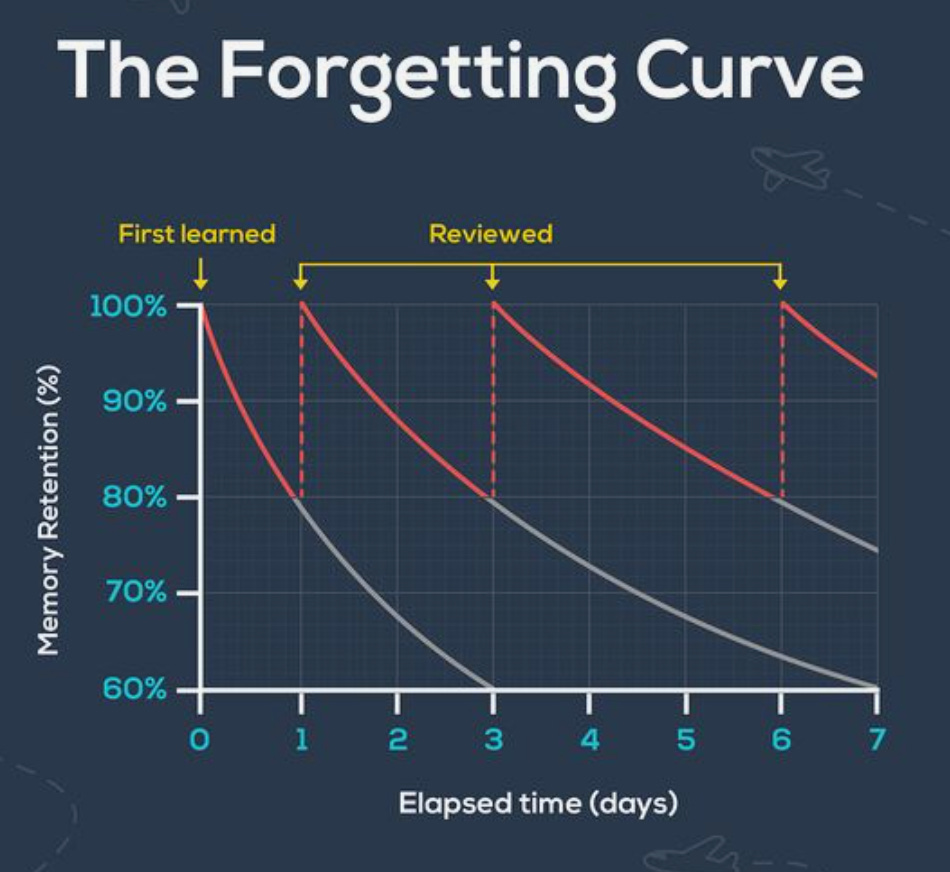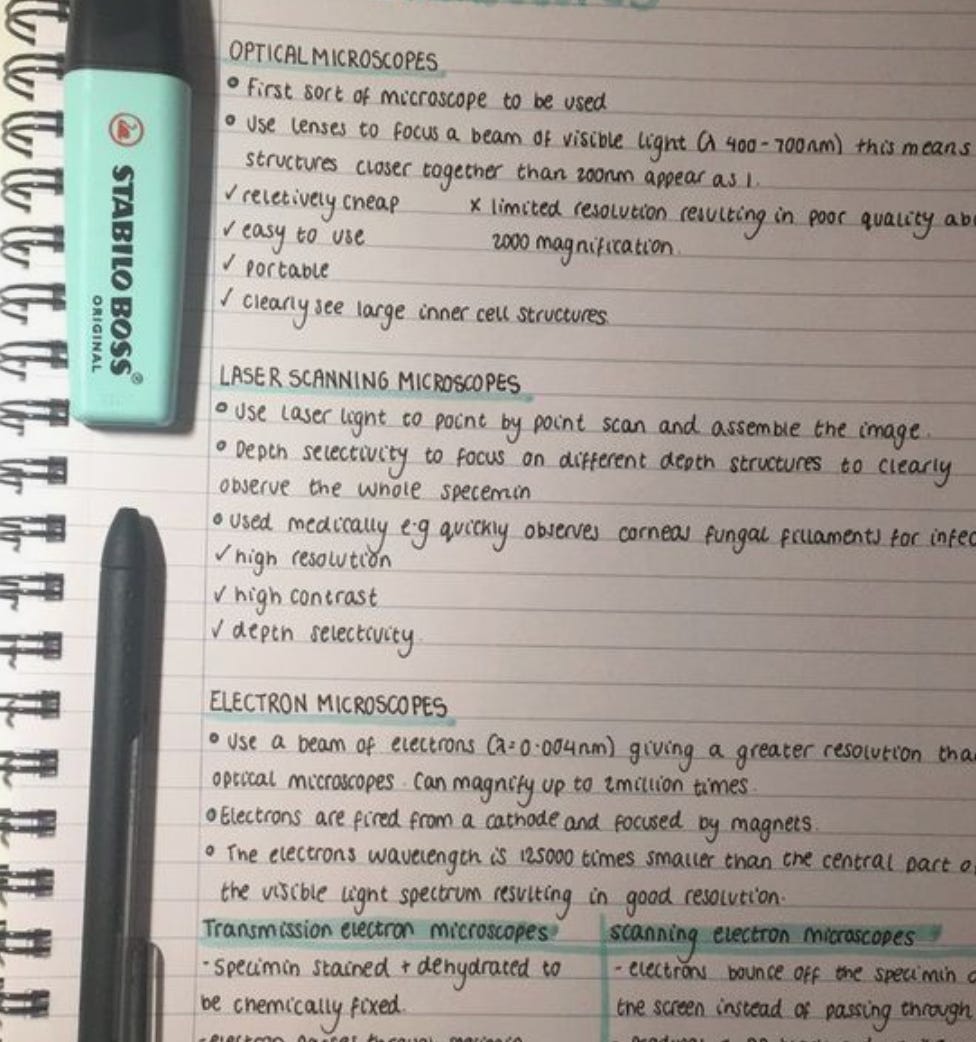5 Top tips to ace your GCSEs and A-level’s : #002
How these science based tips can help transform your future and exams
Hi friends,
Now this title can seem cliché and is in fact more used to get you here in the first place, as in reality no matter what ‘miracle process’ is presented to you it’s all about how to much time your willing to dedicate to memorising (not learning) the material.
Before I begin on my top tips, you need to know you are in a memory game. Not a learning game. I finished my GCSE’s with eight A’s and above, and at A-level I took Biology, Chemistry and Economics and finished with AAB. And what I can tell you is that for core stem subjects (Maths, Science etc.,) being able to effectively memorise and retain information is the key to passing. I believe the learning system is outdated and needs refreshing allowing students a more active approach to learning however, that is not what today’s blog is about.
1. 🧠 Active recall - It hurts but it works
Active recall is the process of having to actively answer and regain information on command, straining your brain to find an answer. This process has been scientifically proven to form stronger connections in your brain to the subject in question.
It’s common for students to enjoy making class notes pretty, colourful and engaging. However, this will not help you ace your exams, merely pass them. Why? Because, this is a process in which you can half-heartedly look at the learning material and trick yourself into thinking your improving your knowledge on the subject, whereas in reality you’re taking a distant role in fully engaging, active recall hurts. It requires a lot of energy. And a lot of focus.
2. 📚 Use Quizlet!
Following from the previous point, flash cards are your best friend. However, we both know there is too much content given to learn in a short amount of time and no one wants to be hand-writing every last question. Quizlet allows you to quickly and efficiently type every question followed by an answer (this is not part of the revision process), giving you the chance to quickly get onto the active recall process.
Moreover, as Quizlet has developed, more engaging learning techniques have been incorporated into the software, for free! It combines scientifically proven methods to form connections in your brain and can lead to a long-term memory of your given subject. This is what I used for my exams, and proved to be very helpful in neatly structuring my learning and revision materials .
3. ⏳ Spaced repetition:
You may be a crammer, or you may be in it for the long run. Either way, it’s important you know how to best set yourself for sustainable memory retention with every study session.
With every visit of your material, you move up the ‘learning curve’ and the days following the session you fall down the ‘forgetting curve’, however after each visit your beginning position slowly increases up the retention curve meaning less revision is required of that subject until exams.
4. 📝 Get those notes sorted in class - not at home
In order not to sound like a broken record, I’ll keep this point short. Make sure your notes are tip top in class so you have a clear bank of resources to refer back to when forming your revision material, either on Quizlet, flashcards or mind-mappng.
Messing about in class (which was often something I’m guilty of), really puts you at a time disadvantage as you now have to both gather the material required to learn, produce your revision materials and go through the active recall process.
5. 🤔 Ask your teacher while you can - as time goes on it can get more awkward
With exam season not too far in the distant future, it’s important to express your questions now rather than later. The last thing you want is to be released on study leave without ever asking how the process of DNA formation occurs. Relying on online resources can put you at risk of learning stuff not on your exam board, and thus not on your test!
📍 BONUS TIPS - Learn your specification
However hard you end up working on your exams this summer, if you’re learning AQA based material and your exam board is Edexcel, you’re wasting your own time and not contributing towards giving yourself the best possible chance of succeeding.
Get the spec from your teacher or online and formulate your study plan in accordance with it!
Thanks for reading and I hope you this has proven helpful in the lead up to exam season. Below I’ve linked my first YouTube video, here you can get an understanding of what to expect from Uni if you’re interested, after you ace your exams!
🎥 My New Video is now live:
https://thecuriousstudent.substack.com/i/89959012/my-new-video-is-now-live






